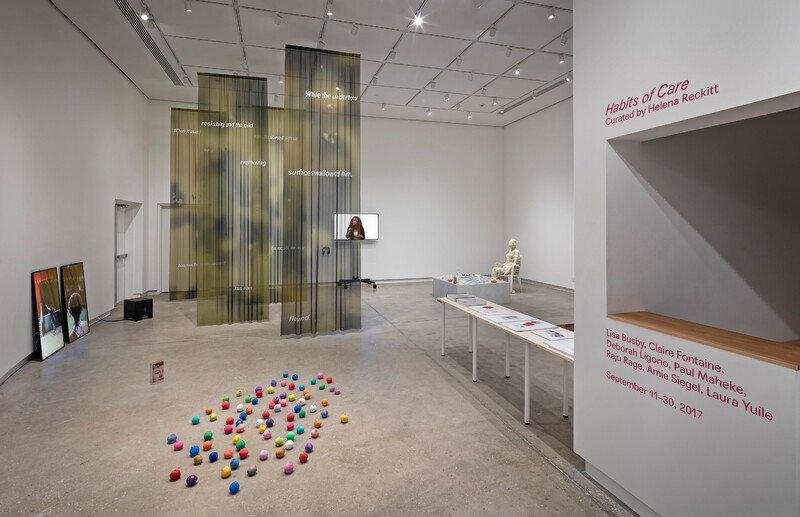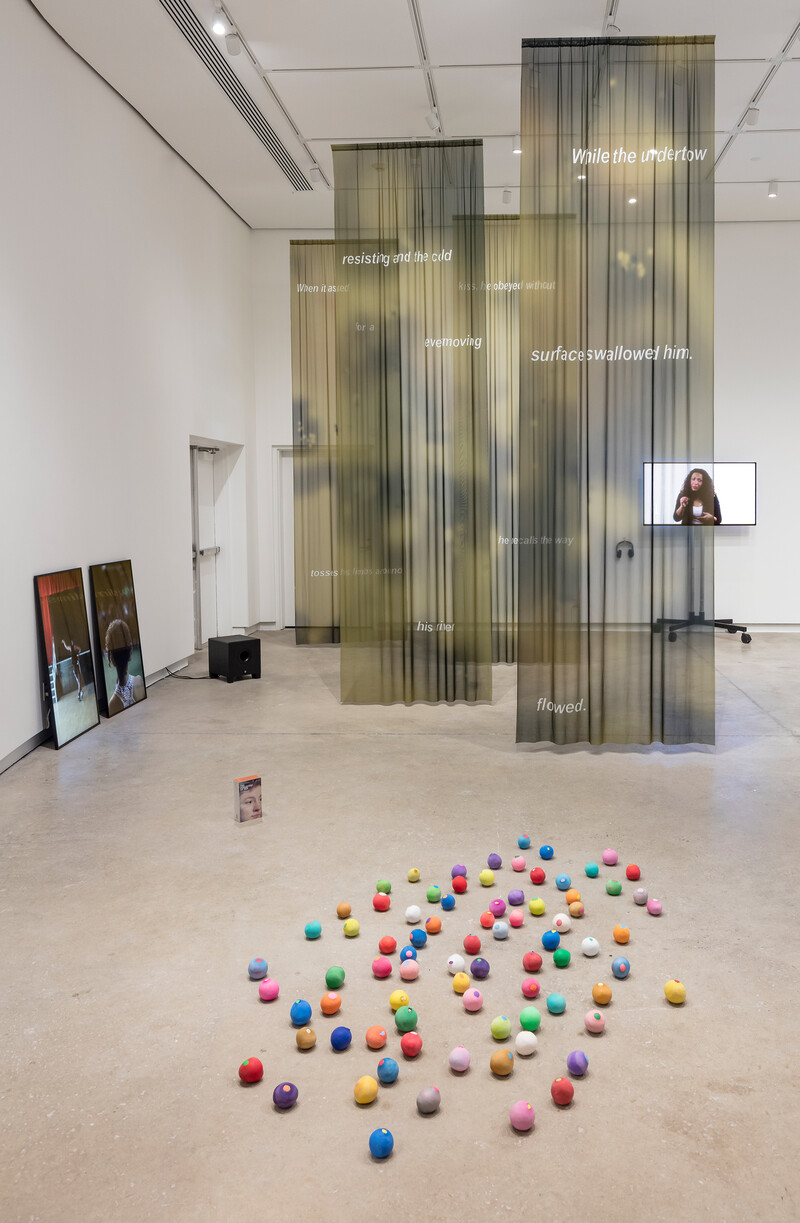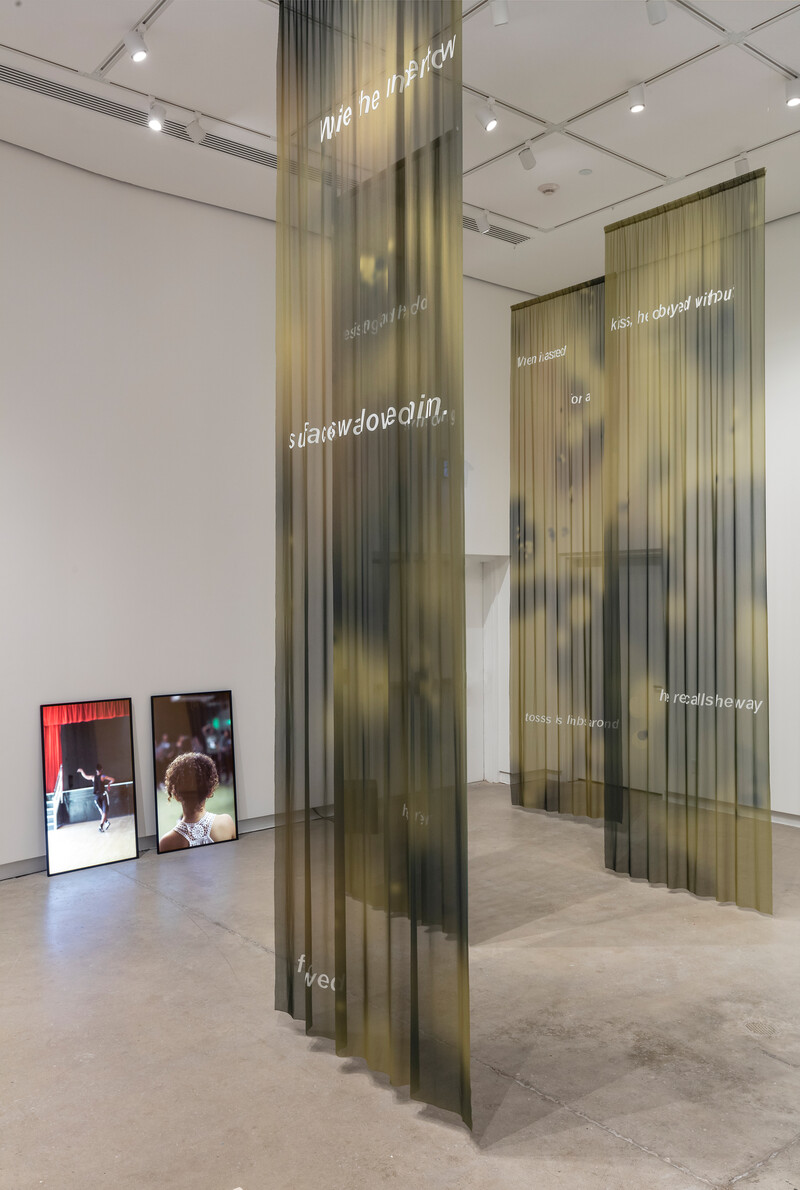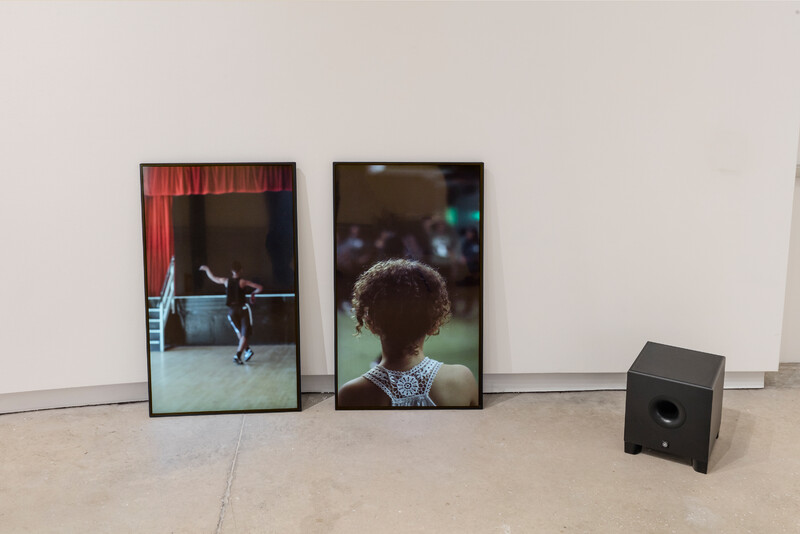
Protocols, Policies, and Proposals Performed, 2017; Laura Yuile, Mother Figure #4, 2017. Installation View. Photo: Toni Hafkenscheid.



Mutual Survival, Lorde’s Manifesto
17:50 min.
Paul Maheke’s work evokes the political dimensions of self and collective care, fragility, and sustenance. As Habits of Care curator Helena Reckitt explains, “the video diptych in Mutual Survival, Lorde’s Manifesto (2015) juxtaposes two forms of dance, both filmed in the same East London community centre. One, a compelling choreography by the dancer Jamila Johnson Small; the other, a less polished rehearsal by young members of a dance troupe in the run-up to the Notting Hill Carnival. Presenting dance as an activity of individual and collective becoming, Maheke’s handheld camerawork is intimate and embodied, as if at pains to avoid a voyeuristic view of these young black performers. As the title suggests, the piece also pays homage to the late black feminist writer Audre Lorde. In subtitles drawn from Lorde’s writings, selfcare is described as a practice of decolonization and feminist emancipation. A subwoofer placed on the floor across from the flat-screen monitors resonates in the visitor’s own body.”
With Lorde’s charged words assembled as subtitles throughout the video, a kind of fictional manifesto takes form: one that accompanies the footage to affirm the importance of community spaces and of dance as a quotidian means for survival, resistance, and sustenance.

The Blackwood
University of Toronto Mississauga
3359 Mississauga Road
Mississauga, ON L5L 1C6
[email protected]
(905) 828-3789
The galleries are open. Hours of operation: Monday–Saturday, 12–5pm.
Facebook | Twitter | Instagram
Sign up to receive our newsletter.
The Blackwood is situated on the Territory of the Mississaugas of the Credit, Seneca, and Huron-Wendat.